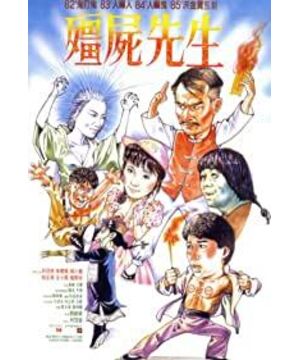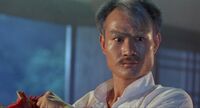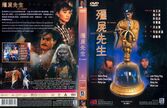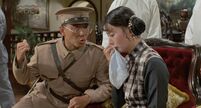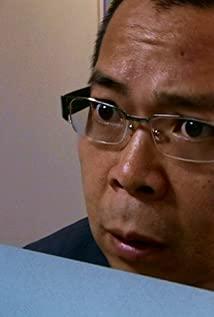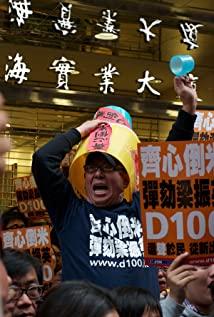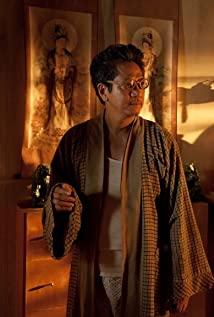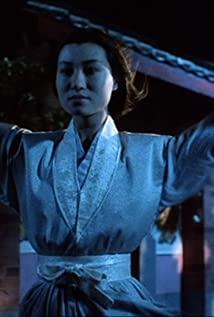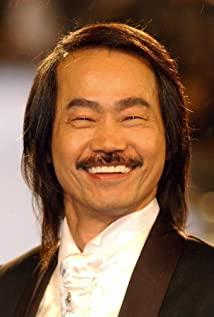Another genre that is as enduring as martial arts movies is zombie movies, which have distinctive features in Hong Kong movies. For a brief history, see Wei Junzi's "The Age of Zombies: The Ins and Outs of Hong Kong Zombie Movies", which can be described as informative. From the perspective of background settings and the introduction of action elements, zombie films are almost a variant of martial arts films, but with more gimmicks, more horror elements, and the integration of folklore and Western techniques, it is more complex. Among the many zombie films, the most representative one is Mr. Lin Zhengying's "Mr. Zombie", which can be called a local interesting teaching film with the theme of zombies in Hong Kong. Zombies wear official uniforms of the Qing Dynasty, with both hands stretched forward, jumping forward, distinguishing the position of people with the sound of breathing, and their strength is infinite, while the zombies are subdued with red threads, glutinous rice, silver swords, spiritual mirrors, peach wood, magic talismans, and formulas, very typical Taoist color. It has nothing to do with Lin Zhengying's culmination of the "Maoshan Taoist" spell in the film, and the subsequent prosperity.
The main line of the film is single, but the layers are rich and distinct. The eldest apprentice Qian Xiaohao is agile and his master's right-hand man in fighting zombies. However, he is accidentally lured by the female ghost in red. However, it is coquettish and charming but not strange, but it is rare. It can also be seen that Lin Zhengying's skill and depth in controlling this type of film can be seen. The second apprentice, Xu Guanying, is timid and lewd, but he still has justice and bravery in his bones. As a result, he was bitten by a zombie and poisoned his body. He was on the verge of change, which brought a lot of trouble to the master. Interestingly, two years later (1987), Xu Guanying played a similar role again in "Ghostbusters", with a bitter face struggling with change and change, with or without fangs, which just added a lot of jokes.
I don't remember much about the later installments of the "Mr. Zombie" series, so I don't dare to comment randomly. After Lin Zhengying's death, the film industry felt a sense of "no Chu Liuxiang in the world". Asia is regarded as commemorating him and filmed a popular drama "I have a date with a zombie" that is still talked about today, but the style no longer maintains the local flavor, focusing on the color of Western vampires, and the potential of zombies has also been greatly enlarged.
One of the folklore "Xiangxi chasing the corpse" was also absorbed by zombie films. Although many films have been involved, it is not known which film has systematically introduced it with this as the main content. According to Yun, there is a "Xiangxi Corpse King", but unfortunately it was not downloaded. In my impression, there is a "Chasing Ghosts and Seven Heroes", which was directed by the great director Yu Rentai, in 1982. Yu Rentai, a native of Shandong, was born in Hong Kong in 1950. He was involved in the film industry in his early years. He began to work as a producer in 1976. He directed "Inside the Wall" for the first time in 1979, which was well received and was also a member of the Hong Kong New Wave Movement. general. "Chasing Ghosts and Seven Heroes" is the fourth film he directed, starring Zheng Zeshi and Xu Guanying. It tells the story of the early years of the Republic of China, when the seven-member gang used the name of expelling corpses (in fact, "corpses" were disguised by living people), smuggling The truth of tobacco soil (when the provinces set up checkpoints to check people who pass through the border, the smuggling of tobacco soil is strictly prohibited by the government), and stopped in a town to rest on the way. The rich man of the town took a fancy to a couple who were performing arts, so they forced them to board a boat, beat their husbands to death, and raped their wives forcibly. Xu waited to accept it. In the forest outside the city, he accidentally encountered robbers. After a fight, although Xu Fang retreated, his body accidentally fell into the swamp, and the corpse was turned into a zombie. After that, he started to kill for revenge.
The atmosphere in the first half of the film is very well rendered. The ancient town of Xiangxi in the early years of the Republic of China under the lens is also stylish. The layout of the picture is strange, the photography is outstanding, and the lighting and colors are well used, but in the middle and back parts, the rhythm Messy, the plot is cliché and weak, the pattern is getting smaller and the bloody style wins. Years later, Yu Rentai went to the United States to film "Ghost Bride" and "Freddy vs. Jason", which was quite addicting in the same vein as the bloody effect. The setting effect of some funny scenes in the film is not bad. The part where the proprietress takes a bath is exquisite and vulgar, and at the end of the film, the two fake celestial masters are frightened, and anyone with a discerning eye can see that they are imitating "The Exorcist", but it is a joke. right here.
The combination of Chinese and Western, and the mixture of local and foreign is a major feature of Hong Kong zombie films. Hong Kong filmmakers have always been good at borrowing and stealing from the West, constantly injecting new vitality into Hong Kong films. This is not to deliberately belittle the originality of Hong Kong filmmakers. "Once Upon a Time" is a pure Hong Kong brand. Zombie films do borrow a lot from Western vampire movies. As for Xian Qiran's "Black Cat" (1991) Ren Dahua, Liang Zheng starring), it is completely copied from Hollywood movies. Hong Kong zombie films steal lessons from the West, which has a lot to do with the origin of Western vampire literature and movies. The Chinese Maoshan Taoist method of catching ghosts is used to deal with eastern zombies, and the Western method (Bible + cross) is used to deal with imported zombies. appeared many times. Also filmed in 1982, "Modern Celestial Master" (the director seems to be Wu Yusen, starring Qin Pei, Xu Guanying, Feng Cuifan), directly let the respective spokespersons of God and Satan fight in Hong Kong.
In recent years, zombie-themed films seem to be rarely produced. I have only seen one "Zombie Age" produced in 2002. The director is Qian Shengwei and the producer is the famous Tsui Hark. According to the cloud, the film was not released, no wonder the disc version has all the dubbing and subtitles in English from the title to the title, which made me so tired to watch. The film did put a lot of thought into the styling design and special effects, and the overall background tone and lens scheduling were very particular, with extraordinary bearing. As for the plot, etc., there is a chance to talk about it later.
View more about Mr. Vampire reviews


